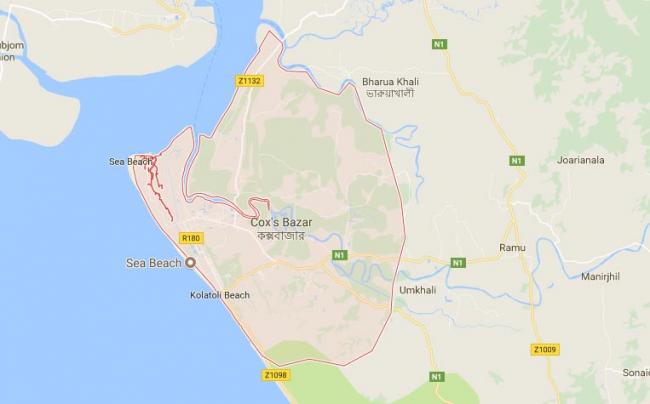
“The coverage is commendable as the oral cholera vaccination campaign was planned and rolled out against very tight timelines. It demonstrates the commitment of the Ministry of Health, Bangladesh, partners on the ground, as well as partners such as GAVI and the International Coordinating Group on vaccine provision, to help secure the health and wellbeing of these immensely vulnerable people,” said Dr N Paranietharan, WHO Representative to Bangladesh.
The first phase of the oral cholera vaccination (OCV) campaign covered 700 487 people aged one year and above, 179 848 of them children aged between one and five years. The campaign was launched on 10 October to cover 650 000 people. The second phase is scheduled for early November to give an additional OCV dose to children aged between one and five years, for added protection.
“The campaign has successfully vaccinated nearly 180,000 children aged one to five years. We will organize another round for these children to provide them with a second dose that will better protect them against this dangerous disease,” said Edouard Beigbeder, UNICEF Representative in Bangladesh.
The OCV campaign was planned following a risk assessment conducted by the Ministry of Health and Family Welfare, with the support of WHO, UNICEF, the International Organization for Migration (IOM) and Médecins Sans Frontières (MSF), in late September.
The International Coordinating Group (ICG) on vaccine provision, which brings together WHO, UNICEF, MSF, and the International Federation of the Red Cross (IFRC), released 900 000 doses of OCV within a day of the Bangladesh government’s request. GAVI provided financial support.
The vaccine arrived in Bangladesh on 7 October, just over a week after being released from the ICG stockpile.
WHO, UNICEF and other partners supported the Ministry of Health and Family Welfare to train more than 200 teams of vaccinators and volunteers; prepare micro-plans and monitor the preparations and implementation of the campaign.
The vaccination campaign supplements other preventive measures, such as increased access to safe water, adequate sanitation and good hygiene. To help improve hygiene, a bar of soap was handed out to each recipient of vaccine.
Support Our Journalism
We cannot do without you.. your contribution supports unbiased journalism
IBNS is not driven by any ism- not wokeism, not racism, not skewed secularism, not hyper right-wing or left liberal ideals, nor by any hardline religious beliefs or hyper nationalism. We want to serve you good old objective news, as they are. We do not judge or preach. We let people decide for themselves. We only try to present factual and well-sourced news.







